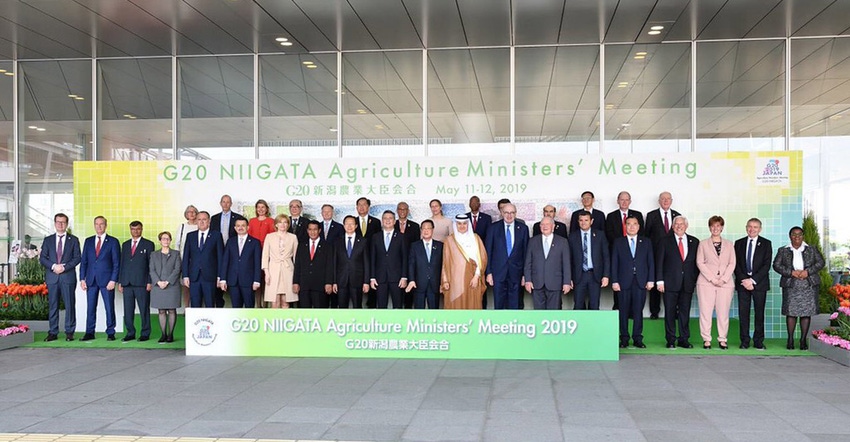May 14, 2019

Western Hemisphere agriculture leaders met May 12 on the margins of the G-20 Agricultural Ministerial in Niigata, Japan, affirming their intent to work together to champion global food security and agricultural trade on the basis of sound science and risk analysis principles.
The Ministers of Agriculture from Argentina, Brazil, Canada and the United States highlighted that food demand is rising while agricultural production faces significant constraints. In this regard, they agreed that agricultural innovation will continue to play a substantial role in addressing such challenges and can improve farmers’ productivity in a safe and sustainable manner.
These Ministers recognized that the number of biotechnology crops being developed and cultivated worldwide is increasing annually. Yet, despite two decades of experience in the safe use of these products, regulatory processes in many jurisdictions create time gaps in their authorization. This leads to an increasing risk of trade disruptions resulting from occurrences of low-level presence (LLP) of biotechnology crops that are approved in growing countries, but not yet approved in importing countries.
LLP occurs when a small amount of a biotechnology crop that has been assessed as safe in one or more countries according to international standards, is unintentionally present in a shipment to a country where the product has not yet been approved. This may lead to trade disruptions, which can affect food security, prices and attitudes toward innovation in both the exporting and importing countries.
The extent of unnecessary asynchronous product approvals worldwide is increasing and requires further actions to address the risk of trade disruption, avoid its negative effects to importing and exporting countries alike, and promote global food security.
Following the meeting, top agricultural officials from Argentina, Brazil, Canada, Mexico, and the United States issued the following statement.
“Together, we stand to work in partnership, and jointly with additional countries, to support regulatory approaches that are risk- and science-based, predictable, consistent, and transparent. Our five nations recognize that innovations in the agriculture sector contribute to improved productivity, including by smallholder and young farmers, and rural women, in a safe and sustainable manner, and to our countries’ ability to meet the ever-growing global demand for food. With the world’s population projected to reach 9.8 billion by 2050, science and innovation will play a key role in enabling agriculture producers to safely feed everyone.
“As Western Hemisphere agricultural leaders, we affirm our intent to work together to champion global agricultural trade based on sound science and risk analysis principles. We also affirm our intent to allow farmers and ranchers access to the tools needed to: increase productivity; reduce food loss and waste; protect soil, water and biodiversity; and produce safe, nutritious, affordable food products year-round, to the benefit of the world population.”
Participating in the meeting were Argentine Secretary of Agroindustry Luis MiguelEtchevehere; Brazilian Minister of Agriculture, Livestock, and Food Supply Tereza Cristina Dias; Canadian Minister of Agriculture and Agri-Food Marie-Claude Bibeau; Mexican Secretary of Agriculture and Rural Development Victor Villalobos; and U.S. Secretary of Agriculture Sonny Perdue.
Source: USDA, which is solely responsible for the information provided and is wholly owned by the source. Informa Business Media and all its subsidiaries are not responsible for any of the content contained in this information asset.
You May Also Like




